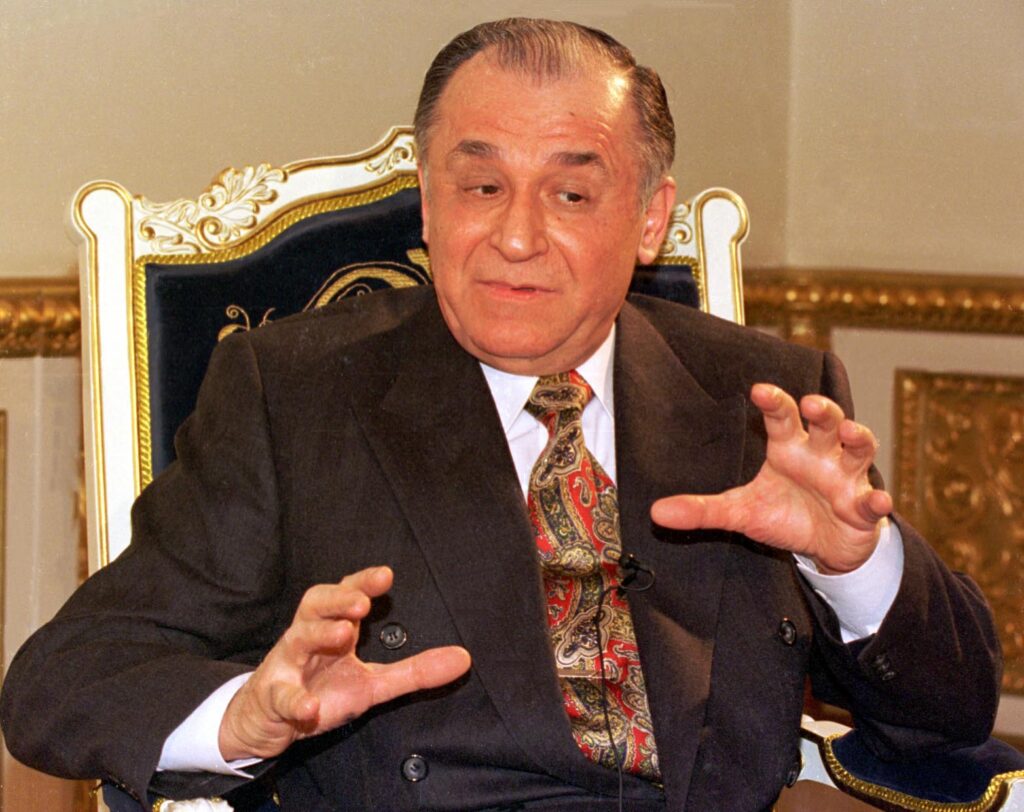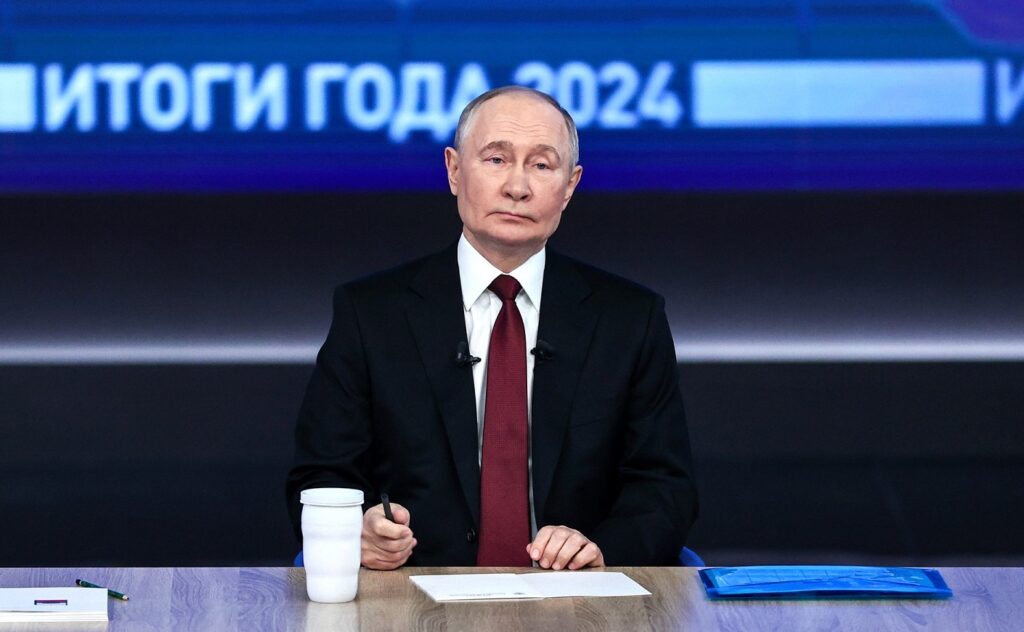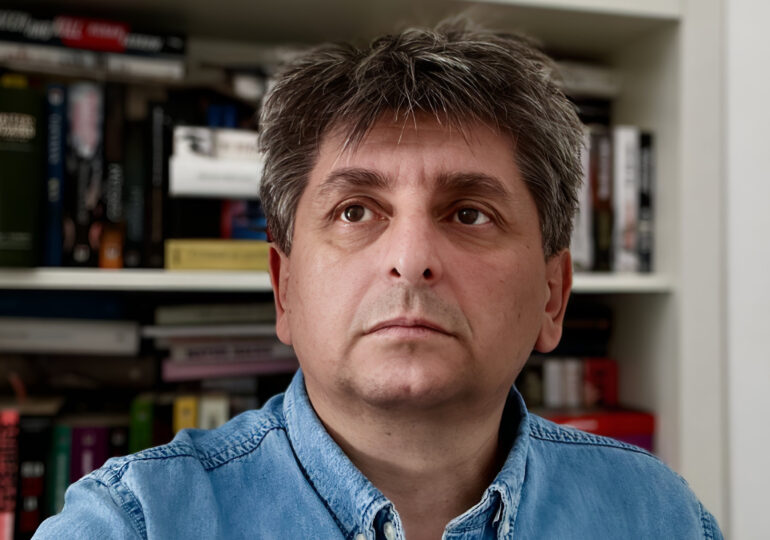For the investigation about counselor George Scarlat, who overnight transformed from an employee of the Presidential Administration in Iohannis’ mandates into a fervent supporter of Călin Georgescu and George Simion, we conducted over 20 interviews with people who had expertise in such a sensitive subject.
I must emphasize that the alert about the peculiar character was given by a fellow journalist, who saw a Facebook post by the counselor, praising Georgescu, recalling that George Scarlat worked at the newspaper „Ziua” in the ’90s, but also learned at some point that he was employed at the Cotroceni Palace.
He signaled the anomaly to me, knowing that I had written extensively on the subject of last year’s election cancellation and Russia’s hybrid attack against Romania.
I made the above clarification for those willing to turn everything into conspiracy theories. Everyday life is much more banal than the imagination of many, sometimes more complicated, and often more surprising.
So, I started from one end of the thread and unraveled until I reached the heart of the National Security Department and the Office for Integrated Information at the Cotroceni Palace, led for 10 years by Constantin Dudu Ionescu, former Minister of Interior, who had known George Scarlat for over a quarter of a century.
Following the documentation, connections, and journalistic evidence presented, we managed to show that at the end of last year, there was a security breach in the most important department of the Presidential Administration, one that disrupted the institution around the elections.
But it was not the only one, such breaches were recorded at the level of the Government led by Marcel Ciolacu, at the level of the Central Electoral Bureau, at the level of the Permanent Electoral Authority, at the level of the Parliament, but also at the level of intelligence agencies. Over the past months, I have written or referred to all these vulnerabilities in a series of articles.
From my experience as a reporter, I can say that almost certainly, no prosecutor will investigate what happened before November 24, 2024, what caused the blockages, and who are the responsible individuals.
First, it will be very difficult for them to gather evidence to make an indictment, and secondly, the investigation would stall due to the complicity that exists at the level of the political class in Romania.
A common sense argument
What is happening today is the result of a long series of bad decisions made by our leaders in a fragile democratic system, born from a dictatorship of such cruelty that is difficult to describe and understand for younger generations.
It was the year 2000, Romania had once again come under the control of Ion Iliescu, a former political leader with strong connections to Moscow, and in his third term, if we count the one from the Constituent Assembly period, Iliescu seemed determined to steer Romania towards the West, to join NATO and the European Union.
Romania's politics were about survival, with the existential stake of the national and unitary state in the middle, in an international context as complicated as it is now.
At that time, there was war in the western neighborhood, and to the east, Russia was collapsing, plagued by corruption, contract killings, and a government controlled by oligarchs fighting among themselves to take control after Yeltsin's imminent exit from the scene.

During that period, I was a master's program student in journalism, with a few years already working in the press, and in a course, I can't remember its name, something related to crisis communication, I had a professor who also taught at the University of Bucharest, where I studied, and at the SRI Academy.
I remember what he told us during a lecture - that everything related to military education, in high schools, officer schools, and academies, must be based on developing patriotic sense, this being the only way those working in the defense system can have a common denominator, create cohesion, and achieve superior motivation to respect military orders and hierarchies. If there were no patriotism, there would be no state, the professor said.
At that time, it seemed like a common sense argument to me. It was the rationale for the oath of allegiance for soldiers, those in intelligence agencies, police officers, etc. Patriotism, attachment to the country is a superior and unifying concept.
But something didn't sit right in the equation. There were too many betrayals in the Romanian military system, too much corruption, too many arrangements and complicity, too many internal and external political influences. Over time, I realized that, in fact, there was a major problem with Romanian patriotism.
The need for peace
After years, I realized that it wasn't the concept that was to blame, nor its promotion in civilian and military schools, but the content of that notion.
The patriotism taught in Romania for over 35 years is one inherited from the communist era, based on general terms without representation in political reality, such as: land, grains, rivers, the sea, our mountains, our wealth, our glorious past, etc.
This type of shallow patriotism was brought by the Soviet Union at the end of World War II, after decapitating Romania, annihilating its memory, form of government, Constitution, institutions, political parties, and cultural elite. Because something had to be put in place, this patriotism was invented, which does not refer to anything, floats somewhere above our heads, justifying anything, especially villainy and irresponsibility.
It was developed and cultivated by Nicolae Ceaușescu as well, to justify his dictatorship, political control, population starvation, and crimes.
The major problem arose after the fall of communism, which began in December 1989, because Romania did not go through a process of lustration, as demanded in the famous Point 8 of the Timișoara Proclamation, but those who took power kept compromised individuals from the golden age of Ceaușescu for years, as well as the Soviet concept of patriotism.
We are among the few countries behind the Iron Curtain that after 1990 did not go through a period of reckoning with the past and detachment from it, a period of institutional reconstruction of the state, regaining public trust in democracy, freedom, and political pluralism.
Although in 1992 the citizens voted for a new Constitution, the fundamental law did not come with the rebuilding of social relationships. The reason given was that Romania got rid of Ceaușescu through violence, and the population needed peace, not a continuation of the revolution, peace being frequently present in Ion Iliescu's political discourse at that time.
Thus, the cohabitation between the executioners and the victims continued, one that we still find today, and the concept of patriotism remained anchored in the Soviet projection, without transforming and becoming one defined by respect for the law and equality before it, by fundamental human rights, by the Constitution, by the autonomy of state powers - Parliament, Government, Judiciary.
The major vulnerability
Today, in Romania, a sociologist will find many people who, declaratively, will be willing to give their lives for the ancestral land, but very few to give their lives for saving parliamentarism and political pluralism, for example.
The Soviet concept of patriotism, still injected into the education system and exacerbated in military training, represents the major vulnerability exploited by the Kremlin in the devastating hybrid war launched against Romania.

Here, the entire network of fake websites and accounts on social media, launched by the Kremlin starting in 2014, glorifying Soviet patriotism, has taken deeper and stronger root compared to other countries in the former socialist bloc.
This could be an explanation for why Romania does not have conservative parties - there is no public for them, everything related to tradition has been subjugated by the Kremlin's narrative, which promotes a nationalism and patriotism that people know, have known since childhood, when they were Young Pioneers, pioneers, or homeland falcons.
In my opinion, this confiscation and distortion are reasons why we are so helpless in a conflict where we were almost about to lose everything.
After 1990, we missed the opportunity to rebuild love for the country, love for a free, democratic Romania that respects its citizens and defends them, led and guided by people and institutions that act in accordance with the Constitution.
Many of our problems are caused by the fact that we are still prisoners in a story written by others, elsewhere, with the aim of influencing and controlling Romania.

